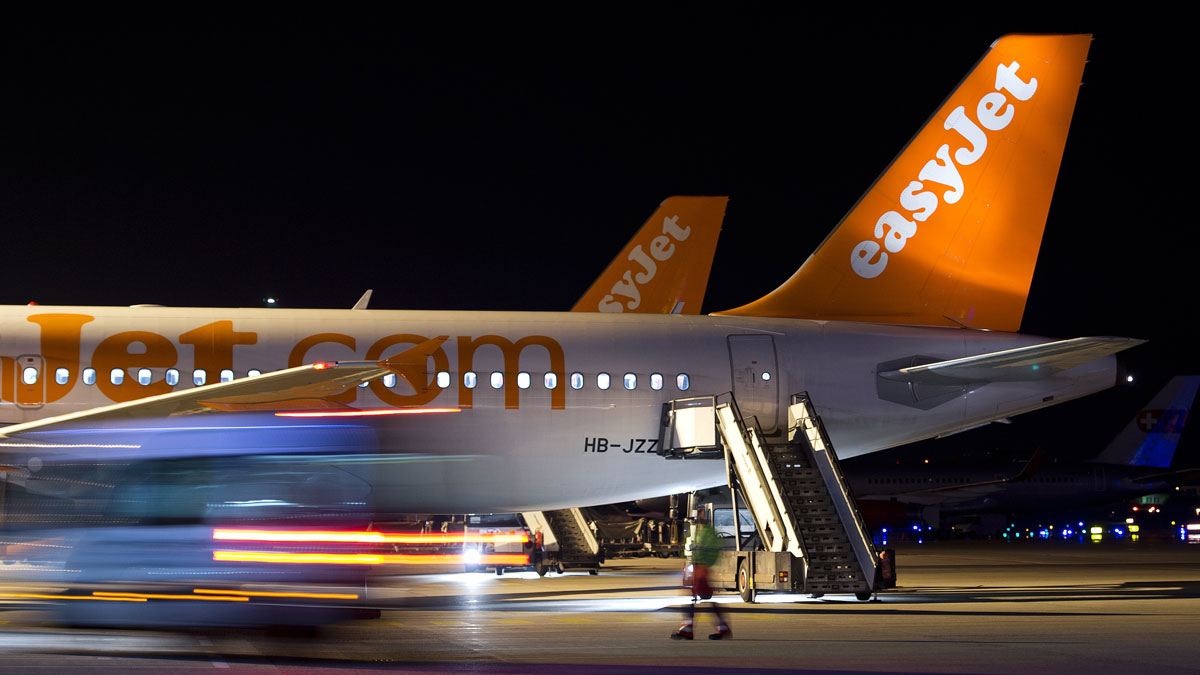How easyJet’s electric plane will work
Low-cost carrier says it will be flying battery-powered aircraft by 2030

A free daily email with the biggest news stories of the day – and the best features from TheWeek.com
You are now subscribed
Your newsletter sign-up was successful
EasyJet will begin testing a prototype of its upcoming battery-powered plane next year, ahead of the launch of all-electric flights from 2030.
The low-cost carrier - the second-largest in Europe after Ryanair - announced last year that it had founded a partnership with US-based start-up Wright Electric to create low-noise electric aircraft for use by 2027.
A statement released by the two companies yesterday pushed back that deadline by three years but said that the project has “moved to the next stage of engine development” of the low-emission, low-cost plane, Reuters reports.
The Week
Escape your echo chamber. Get the facts behind the news, plus analysis from multiple perspectives.

Sign up for The Week's Free Newsletters
From our morning news briefing to a weekly Good News Newsletter, get the best of The Week delivered directly to your inbox.
From our morning news briefing to a weekly Good News Newsletter, get the best of The Week delivered directly to your inbox.
Wright Electric CEO Jeffrey Engler said a patent has been filed on an electric engine for a nine-seater prototype plane that will take to the skies next year. The firm is also working on a 50-seater version, which will be followed by a 150- or 180-seater plane, he added.
ITV News reports that easyJet has identified its London to Amsterdam route as a possible starting point for an electric airliner, owing to the “strong demand for day-return trips”.
The airline’s chief, Johan Lundgren, said: “The technological advancements in electric flying are truly exciting and it is moving fast. From the two-seater aircraft, which is already flying, to the nine-seater which will fly next year, electric flying is becoming a reality and we can now foresee a future that is not exclusively dependent on jet fuel.
“The target range of the electric plane is around 500 kilometres [310 miles] which, within our current route portfolio, would mean a route like Amsterdam to London could become the first electric ‘flyway’.
A free daily email with the biggest news stories of the day – and the best features from TheWeek.com
“We can definitely see a way forward in how we will get this aircraft into the fleet.”
So how does it work?
Until now, fully electric planes “have been difficult to develop because of concerns over the amount of power needed to generate the thrust demanded by huge passenger jets”, The Times reports. As a result, the focus has been on developing hybrid jets, with a view to working on full battery-powered models further down the line.
But Wright Electric’s plane will reportedly have an electric propulsion system distributed along the wing, “instead of large engines under each wing”, the newspaper says. “It will also have a battery that can be easily replaced or swapped, and long, thin wings to improve energy efficiency and reduce drag.”
The firm and easyJet say that the technology should lead to a “further big cut in the amount of fuel being burned in the air and on the ground”, a large reduction in emissions, and “much quieter aircraft”, according to the BBC.